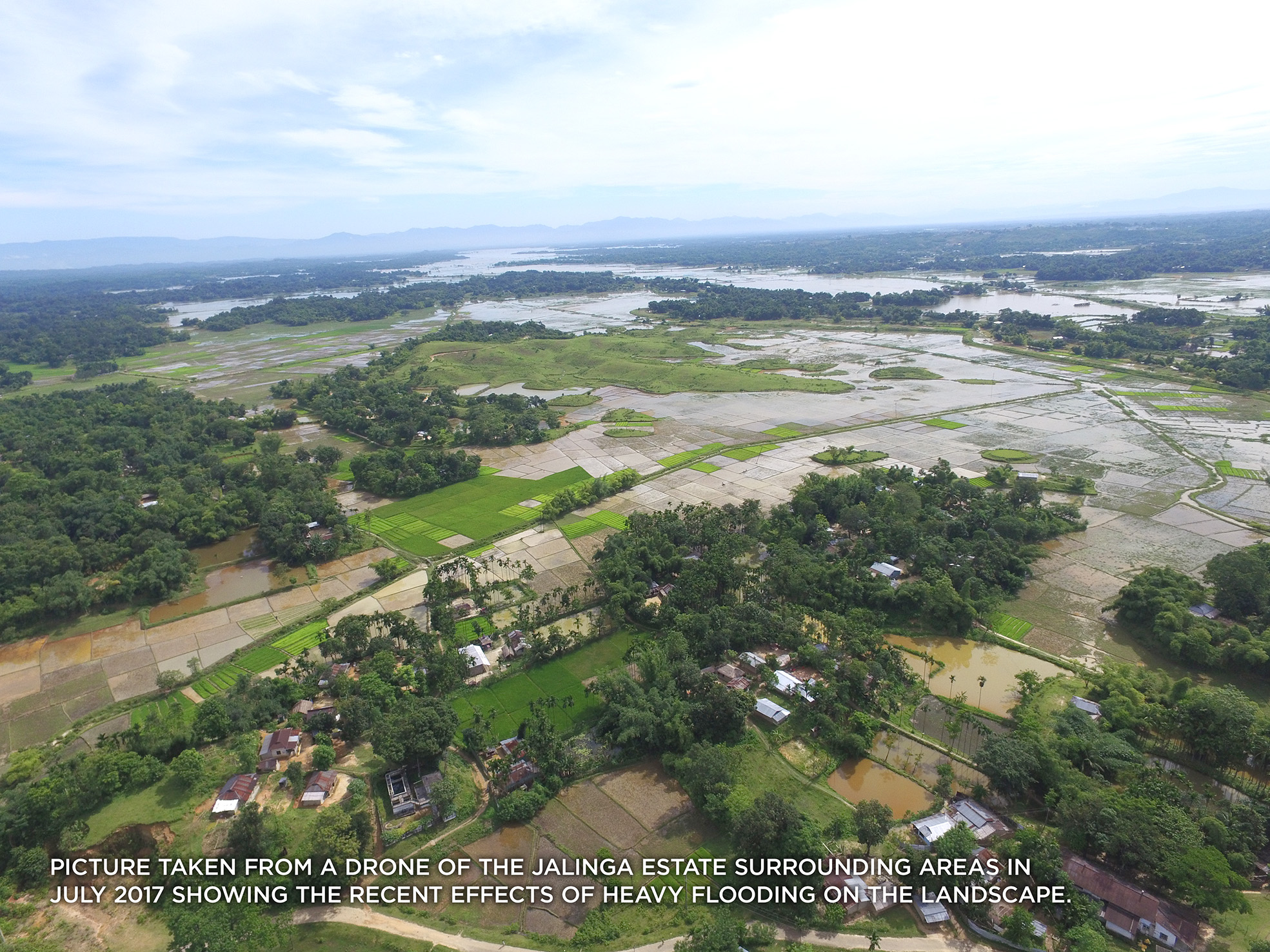Jalinga - The World’s Only Certified Carbon Neutral Tea Garden
« Back to all articlesIt can surely be argued that the we must all take responsibility - as individuals and that business, which is creating the most emissions, must take even greater steps to reduce its footprint. We can walk instead of drive, use public transport, switch to Ecotricity, recycle, change our lightbulbs to the most energy efficient LED types, heat and insulate our homes efficiently and off-set our air travel by purchasing carbon credits etc… but business needs to lead the way to have the greatest global impact.
At Storm Tea we recognise our responsibilities which is why the vast majority of our tea is organic and is packed in a factory that is carbon neutral certified. But that’s not enough when there is so much more to be done. That’s why we are big supporters of the Jalinga Tea garden in Assam, East India, the world’s first and only certified carbon neutral tea garden. The excellent black leaf tea produced there is the key component of our best-selling blend – Estate Organic Breakfast – so is an area where we are able to have the greatest impact.
The definition of carbon neutrality
Carbon neutrality, or having a net zero carbon footprint, refers to achieving net zero carbon emissions by balancing a measured amount of carbon released with an equivalent amount sequestered or offset, or buying enough carbon credits to make up the difference. Becoming Carbon negative has the most positive impact of all – a situation where an operation is absorbing more CO2 than is being created to result in a negative balance.
Jalinga – Leading the Way in Tea
The Jalinga Tea Garden in Assam, India has achieved carbon neutral certification and during a recent visit, we were able to learn how. These are the key actions that have brought about the garden’s carbon neutral certification:
- The garden is large - some 1,100 hectares, 225 of which are left as virgin forest which naturally absorbs CO2. Extensive shade trees throughout the garden also contribute.
- The tea is entirely organic so petrochemical fertilisers and agricultural disease agents are not used.
- Intense production of hundreds of tonnes of natural fertiliser is created throughout the year using pruning waste and cow dung.
- With 1,600 employees working as a permanent community in this vast tea garden, there is great potential for this workforce to produce large amounts of CO2 through burning cooking fuel. As such, each family has been issued with 2 eco stoves which use 60% less fuel than traditional cooking methods.
- The cooking stoves reduce wood and bamboo to charcoal which is collected and used to fire the tea in the garden’s factory. In the past coal was used.
- The owner is teaching competitor tea garden owners and management teams these practices in the hope of creating more carbon neutral farms in India.

Follow storm
Sign up for news & offers